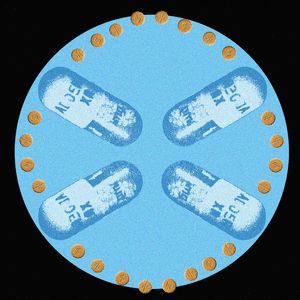Go into any college library during finals week and you’ll likely see students filling every single seat and table with their heads in their laptops—desperately trying to cram those last precious bits of information into their brains. Disconcertingly, a growing number of them are popping pills like Ritalin, Adderall, and Vyvanse to get the job done.
Contrary to popular belief, though, the drugs are likely having the opposite intended effect if they don’t have a cognitive disorder like ADHD. At least, that’s what a study published Wednesday in the journal Science Advances suggests.
A multi-university team of researchers have found that so-called “smart” drugs like Ritalin and Adderall may actually cause people to take longer to complete productivity tasks, and actually force people to exert more effort to finish things than those who don’t take the drug. However, they cautioned that more research is needed to bear this out fully.
“Our research shows drugs that are expected to improve cognitive performance in patients may actually be leading to healthy users working harder while producing a lower quality of work in a longer amount of time,” Elizabeth Bowman, a neuroscientist at the Centre for Brain, Mind and Markets at UM and co-author of the paper, said in a statement.
The experiment took place in Melbourne, Australia and involved four double-blinded, randomized trials with the same 40 participants. Each subject took either one of three drugs commonly prescribed for ADHD—methylphenidate (Ritalin), modafinil (Provigil), or dextroamphetamine (ProCentra)—or a placebo.
They were then tasked to complete an exercise called the Knapsack Task, which involved filling up a virtual knapsack with items that had different weights and masses in the most optimal way.
The participants who took one of the smart drugs saw a decrease in their overall performance—inefficiently filling up their knapsacks while taking longer to complete—when compared with those who took the placebo. Those who took the placebo first generally showed a decrease to their performance after they received the drug, and very rarely increased in performance.
The only thing that the smart drug participants seemed to have improved was their motivation, the study’s authors note. This could be great for getting started, but doesn’t necessarily indicate that a job will be done well.
“Our results suggest that these drugs don’t actually make you ‘smarter’,” Peter Bossaerts, a neuroeconomics professor at the University of Cambridge and co-author of the paper, said in a statement. “Because of the dopamine the drugs induce, we expected to see increased motivation, and they do motivate one to try harder. However, we discovered that this exertion caused more erratic thinking.”
Of course, the authors do note that additional studies need to be conducted to fully understand the mechanisms behind this. However, it should give anyone pause before they take a smart drug unless they actually need it.
So, that’s all to say: Sorry, college kids. Looks like you’ll have to hit the books and study the old fashioned way: With time, effort, and enough black coffee to kill a horse.








